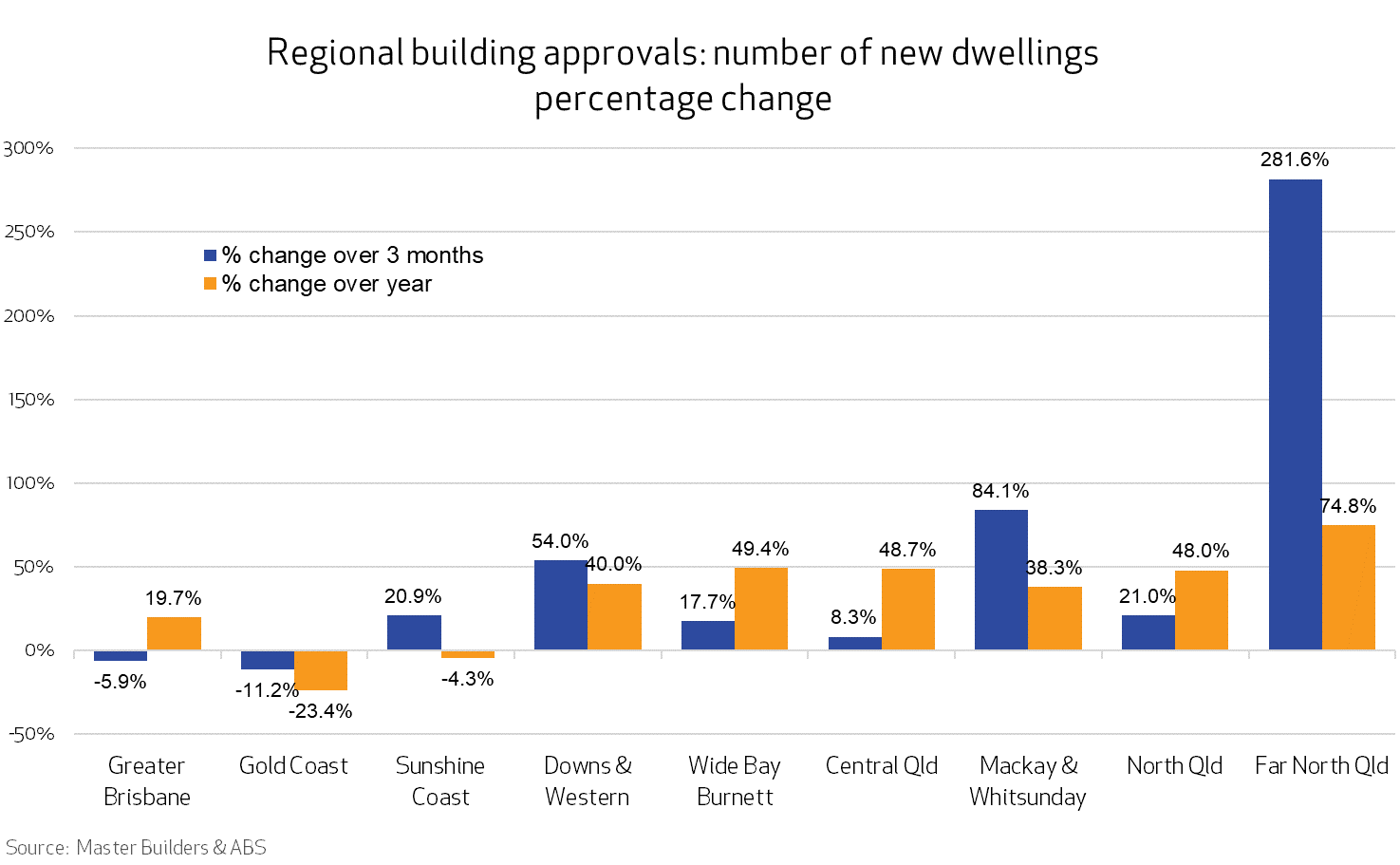16 September 2025
Queensland has recorded a modest lift in new dwelling approvals, but the pace remains sluggish – underscoring the need for reforms that accelerate delivery.
The Australian Bureau of Statistics’ (ABS’) statewide data shows 38,413 new houses and units were given the green light in the 12 months to July, up +13.7 per cent. This is still a far cry from the government target of 50,000 each year, and only Victoria (+7.2 per cent) and Tasmania (-7.5 per cent) have seen a lower growth rate over the same period.
Drilling down into the regional ABS figures for the July quarter, Far North Queensland (Cairns) recorded a whopping 281.6 per cent increase in house and unit approvals. Mackay and Whitsunday followed with a hefty 84.1 per cent jump, followed by Downs & Western (+54 per cent), North Queensland (+21 per cent), Sunshine Coast (+20.9 per cent), Wide Bay Burnett (+17.7 per cent) and Central Queensland (+8.3 per cent). Greater Brisbane recorded a -5.9 per cent plunge. The Gold Coast also dropped back by -11.2 per cent for the quarter.
It comes as Master Builders has made its final submission to the Queensland Productivity Commission (QPC) inquiry into the regulation of the building and construction industry.
Master Builders General Manager – Policy & Advocacy, Dyan Johnson, said the QPC’s review, and the federal government’s pause on residential changes to the National Construction Code (NCC), presented a rare opportunity for transformative change.
“The key to success here is asking whether existing policies and technical changes deliver a clear net benefit for the community and our industry. Anything that fails that test needs to be abandoned,” Ms Johnson said.
“We support the QPC’s direction towards a broader industry reset and have earmarked several urgent priorities in our final submission to their inquiry.
“The currently frozen Best Practice Industry Conditions (BPIC) must be permanently repealed – they have no place in government procurement.
“Safety and build quality need to stay top of the agenda. We are calling for consistency in Queensland’s WHS legislation with the national model laws, and to prevent their misuse by some Health & Safety Representatives, which drives down productivity on worksites.
“The livable housing and energy efficiency changes in NCC 2022 must be made voluntary. The evidence shows that there is no net benefit to the community, while our research indicates they add between $22,000 and $44,000 to the build cost of a home.
“The expansion of the Project Trust Accounts regime has also been paused, subject to a regulatory impact assessment – but we maintain they should be scrapped.
Ms Johnson also welcomed the federal government’s five-year pause to the NCC, once the 2025 Code is introduced.
“We need to make sure the NCC focuses on what really matters: building homes that are safe, high-quality, and practical to deliver. We will seize the opportunity of the review to ensure that future changes to the Code are required to pass buildability and supply-readiness tests before being adopted, and to make the case for free access to the referenced Australian Standards,” she said.
“Now is the time to gain clarity and hit the reset button for the benefit of our industry and the communities who need us.”






